KOKI Days 2023 in Vargesztes
We feel at home in the houses of Villa Park in Várgues and, more importantly, our conference speakers would be welcome at any international event of this kind. And not just us, our guests and members of our Advisory Board thought so too.
Our institutional conference, the KOKI Days, started on 21 September in rather cool, overcast weather. In addition, one of the buses was only allowed to leave with a slight delay, and when we arrived at the well-kept houses of the Villa Park in Várgesztes, still surrounded by green trees, we could see the ideal and prepared rock-for-rock climbing, although the registration had been simplified since last year, it did not change the fact that the weather was rainy and it was cold. "We'll mostly be in the auditorium anyway," we encouraged ourselves, and by the time our director, professor Zoltán Nusser Member of HAS, began his welcome speech, practically everyone was up in the auditorium. By the time the first session was over, the sun had already come out, and the weather, which was bright until late afternoon on Friday, made our leisure activities even more enjoyable.
An unmissable part of the opening of the KOKI Annual Scientific Conference was the introduction of the members of the Institute's External Advisory Board (KTT in Hungarian). After more than a decade of excellent work, Dr. Barry Everitt unfortunately, resigned his membership, but Zoltán Nusser's invitation was accepted by Dr. Tibor Harkány (Vienna) and Dr. Christian Luscher (Geneva) professors.
This year we had to miss Vincent Prevot, one of the current members of the KTT - Angus Silver, Vincent Prevot, Christian Luscher, and Tibor Harkány - who could not join us in Várgesztes.
Those who were with us, however, obviously had a good time.
Professor Angus Silver, as he has done every year, followed the presentations with great interest, speaking to and asking questions of each speaker. Among the new members of the KTT, Tibor Harkány, who is currently a professor at the Medical University of Vienna and the Karolinska Institute in Stockholm, was known to many of us from his years in Szeged, i.e. before 1999, because he had visited the Institute several times for joint research. Professor Christian Luscher from Geneva has also been our guest and has given a lecture. Like Angus Silver and Tibor Harkány, he was a lively participant in the post-lecture discussions, and his visibly good-humored conversations during the breaks and at the poster sessions showed that he felt "at home" among us.
Of the 24 lectures in the original program, only one was missed. The presentation of his Ph.D. student who had fallen ill was presented by his supervisor, Zoltán Nusser. The content, English style, and preparation of the 11 Ph.D. and TDK students (Attila Kelemen from Balázs Ujfalussy's group) were very good.
It is no small task to conduct the presentations on different research topics in four sessions, to be ready for questions, to wait a little for the audience's reaction, to keep time, and not to let the program slip. Thanks to our four well-prepared session chairs, this was also well done.
The usual poster session was open after lunch on Thursday and after breakfast on Friday. If there had been more people at the poster session on Thursday afternoon during the entire time allotted, it was not because of the lack of interest or the inviting sunshine outside, but because of the limited exhibition space, the heat, and the lack of air. Early on Friday morning, the heat was not a hindrance, and there was even the opportunity to have a longer conversation with the researcher presenting the work, who had been discouraged from doing so by the aforementioned factors the previous day. These discussions at the poster sessions were often useful because it was also possible to ask questions that were not understood during a presentation.
Among the venues for our conferences so far, this one seems to us the most suitable, in terms of the most important aspects, both for the scientific part and for spending free time together with good programs. I am sure that we will find a better solution for the posters next year.
No one stressed it, but this year was a jubilee symposium, the 25th! There was no cake and no speech, but we had a distinguished guest.
Attila Losonczy, Professor at Columbia University/Zuckerman Institute, is well known personally to those who have worked at KOKI for 20 years, and Zoltán Nusser, whose Ph.D. student he was, can be justly proud of his world-class work and success.
Attila has willingly agreed to write about his experiences, of which, reading his lines, the active participants and theme leaders of our small conference in particular can be proud.
"I was delighted to come to the KOKI days at the invitation of Zoltán Nusser. It is always a pleasure to meet people working at KOKI, and this year was also the 20th anniversary of my leaving KOKI and moving from Hungary to the USA.
The scientific presentations and posters at the KOKI Days provided a good cross-section of the world-class work going on at KOKI, both in-depth and in breadth. This has placed the Institute among the world's leading neuroscience research institutions and has kept it there ever since.
I found that the lecture groups were all working on exciting topics, using the latest anatomical, molecular, behavioral, and physiological methods. What I would definitely like to highlight as a positive aspect is the preparation of the students and staff presenting their deep knowledge of the research topic and their willingness to engage in discussion.
The thorough work of the topic leaders was evident not only in the preparation of the lecturers but also in the topic guidance of the students.
Another positive thing I would also like to highlight is the collaboration between groups.
I think this can always be improved, for example by having students with a common theme, but you could see that the framework for collaboration is there and it works very well between some groups.
Here I note another great advantage of KOKI, which is perhaps not so obvious to those working in the Institute. This is the role of the central units (laboratories) within KOKI. This also provides further opportunities for strengthening and coordinating collaboration and joint work.
The success of the joint programs (from rock climbing to cooking dinner) alongside the scientific work at the KOKI days need not, I think, be highlighted. It was good to see this strong and cohesive community ("team KOKI"), which makes the institute a depository of Hungarian neuroscience.
I'm glad I was there and I hope we don't have to wait another 20 years for the next time."





